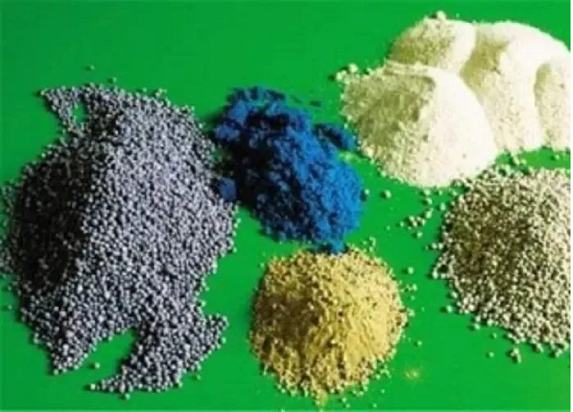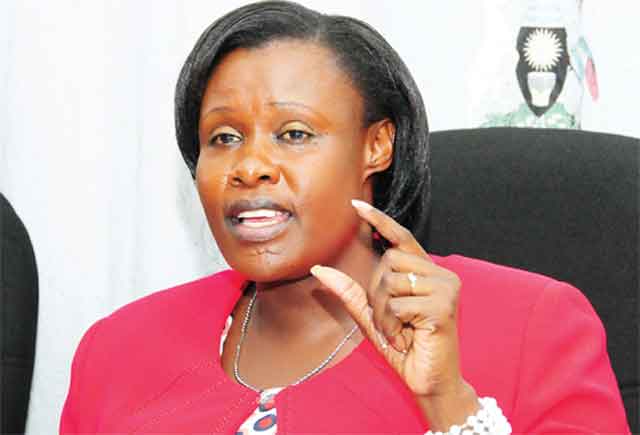The number of farmers using inorganic fertilizers in Uganda is still low due to the wrong perception and limited access. Dr. Henry Nakalet Opolot, the Commissioner in charge of the Agriculture Cluster Development program in the Ministry of Agriculture, Animal Industry and Fisheries, says that there is still a negative attitude towards fertilizer by farmers who associate them with diseases like cancer, which they say consumers of produce fertilized with inorganic fertilizers can be exposed to.
He says this is something they have attempted to counter through sensitization. He adds, that the availability of inorganic fertilizers is still low and that several farmers lack the capacity to purchase them even at subsidized prices. Dr. Opolot says that currently, the uptake of fertilizers in the country is less than 5% despite agriculture remaining the biggest employer with over 80% of the population depending on it for survival.
According to the 2022 Uganda Bureau of Statics annual Agricultural survey, about 7 million households in Uganda cultivate land or reared livestock in 2019. Dr. Opolot is concerned that the low uptake of fertilizers could exacerbate the food insecurity situation in the country at a time when other factors like climate change and the effects of COVID-19 have also affected the environment and the economy in which the farmers operate.
Data from a 2018 study by Knoema, a business data platform, shows that Uganda uses 3.3kgs of fertilizer per hectare. At the same time, fertilizer consumption for Hong Kong was 3,573.9 Kg per hectare. Other top consumers were Malaysia, Bahrain, New Zealand, and Ireland. He urges farmers to embrace the use of fertilizers because, with continuous cultivation of the land, it wears out hence requiring a boost to be able to produce more yield. Dr. Henry Nakalet Opolot was speaking at the launch of Sustain Africa Uganda initiative by the African Fertilizer and Agribusiness Partnership- AFAP.
Inorganic fertilizers are made from petroleum products mined from the earth while organic fertilizers are created from the byproducts like cow dung, animal urine, rotting plants, and others. Organic fertilizers are environmentally friendly and hence beneficial to both the soil and plant. On the other hand, inorganic fertilizers can easily upset the entire ecosystem by increasing a toxic concentration of chemicals in the soil hence affecting the soil in the long run.
Several farmers find using Organic fertilizers, a more traditional way to rejuvenate their gardens. But John Mwanja, the Assistant commissioner Agro- chemicals in the Agriculture Ministry says that inorganic fertilizers are easier to use and provide a better yield without investing a lot of work.
Mwanja explains that farmers need small quantities of inorganic fertilizers to achieve more production compared to what they would need to have meaningful production using organic fertilizers.
Joel Kakaire is the country manager of Africa fertilizer and Agribusiness Partnerships-AFAP, a service provider to the private and public sectors on sustainable development projects and policies focused on market-driven business solutions in fertilizer and agribusiness for agriculture productivity.
AFAP runs the Sustain Africa Uganda Initiative, an Emergency Response and Resilience initiative intended to address the fertilizer supply deficit in Africa. He says they working with other partners to provide inorganic fertilizers to farmers for four crops including Maize, beans, rice, and Irish potatoes at a subsided price of 30 percent.
He says they shall be working closely with farmer groups and that one of their supplier who shall deliver products at their over 100 stations across the country is ETG. Kakaire says that they have 17 products that farmers will be able to access at between 110,0000 Shillings to 150,0000 Shillings for a sack of fertilizer they would ordinarily buy at 200,0000 Shilling on the market. These products shall be accessible through their regional suppliers.
He however acknowledged the low uptake of the fertilizers by the farmers noting that out of the 5000 metric tons brought on the market in August only 800 metric tons have been bought off so far by farmers buying in small quantities of two to five kilograms per farmer. He says there is a need for more sensitization of farmers.
He goes ahead to acknowledge the need to sensitize the farmers about the need to use fertilizers and how to apply them based on the type of food. Hassan Kato, the CEO of Kam farmers limited, says that the negative attitude needs special attention as many still believe in using organic fertilizers branding inorganic fertilizers to be poisonous and causing diseases like cancer.
Grace Roumo, a farmer from Karamoja complained about the prices, saying that the government needs to come out and follow up on the final prices so that farmers are not heated at the hand of business people seeking exorbitant profits.
–URN





